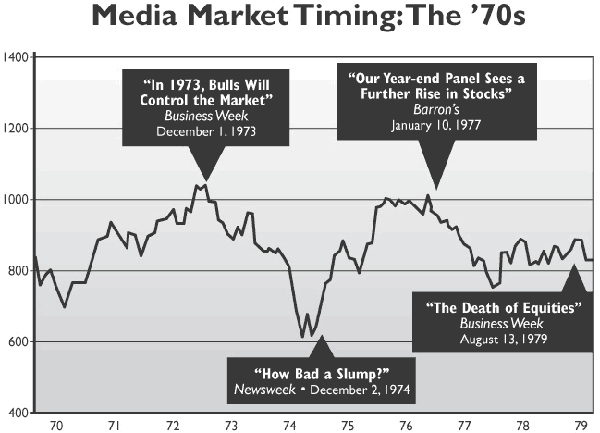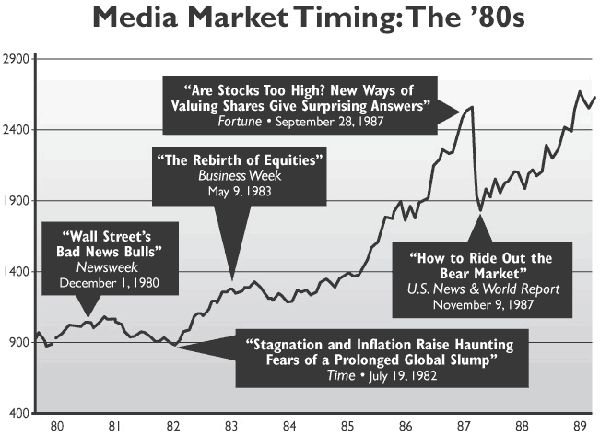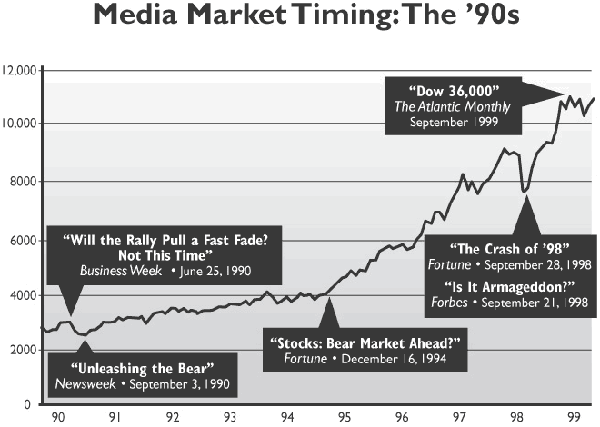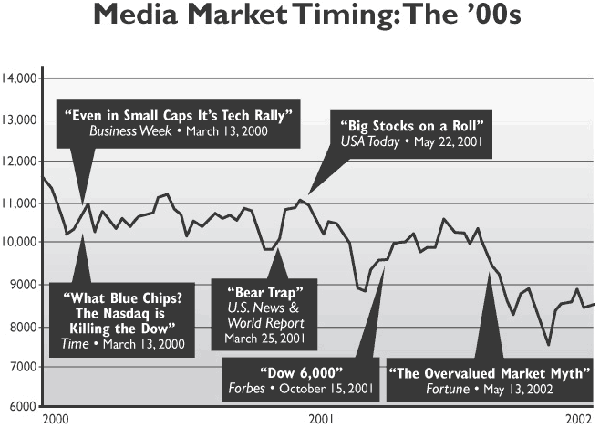Apprenticed Investor: Lose the News
Barry Ritholtz
TheStreet.com 06/16/05 – 07:10 AM EDT
~~~
Have you ever noticed how the stock market reacts differently to the same reported events?
Why is it that we sometimes sell off “in response to rising oil prices,” but at other times the “market rallied, despite the rise in the price of crude”?
How come a selloff was caused by a suicide bombing in Iraq, but a week later, the markets shrugged off an even larger, deadlier bombing? Is it possible that the markets are responding to forces other than the latest headlines?
Short answer: Absolutely. Yes.
Longer answer: Keep reading.
As we discussed last week, it’s clear that predictions of pontificating pundits have an extremely short shelf life and can be safely ignored. But it’s not just the talking heads who can throw you off your game. The value of the entire financial news complex — both print and electronic — seems to be hugely misunderstood by investors.
Even worse, many investors misapply what they hear; they ignore data, focusing instead on headlines and occasionally, the opinions. There are at least three problems with this approach:
Worse yet, old news can have an impact on your thought process. That’s why I read The Wall Street Journal on the train home, and not on the way to work. Why? It forces me to recognize that the news is stale, and I avoid allowing it to influence my decision-making process. Instead, it becomes for informational proposes only (Yes, I really do this).
Did the FDA approve a new drug or not? The subsequent reporting is irrelevant; it’s the event that matters.
Quite often, it’s not the news that matters, but the reaction to the news. Look at Intel’s (INTC) midquarter update. It was good all around, but the stock has since slipped. That’s because the improved environment, especially for laptops, was already well known. It was fully built into Intel shares.
When we consider events of even greater historical significance, we discover something rather astounding: Over the long haul, the markets ignore things like Pearl Harbor, JFK’s assassination and even the Sept. 11 terrorist attacks. Gary B. Smith showed how after their initial response, the markets resume whatever their prior trend was.
Have a look at these charts provided by Neal Frankle, author of Why Smart People Lose a Fortune. They offer a compelling explanation as to why the mainstream media should not be the source of your investment strategy; in fact, they can often be a strong contrary indicator.
 |
| Source: Why Smart People Lose A Fortune, by Neal Frankle |
 |
| Source: Why Smart People Lose A Fortune, by Neal Frankle |
 |
| Source: Why Smart People Lose A Fortune, by Neal Frankle |
 |
| Source: Why Smart People Lose A Fortune, by Neal Frankle |
Avoid the Headline of the Day
The news machine needs to create an enormous amount of content to have product to sell. Hours on TV and radio, pages in print and on the Web. Remember, most media are advertising-driven, and it requires all that content to be able to sell all those ads. (That’s why jokers like me are on so often).Just think about some of the recent headlines and their impact on both markets and individual stocks. The CEO of a major brokerage firm resigns — who cares! Martha gets out of jail: Whoop-de-doo!
The media focus on the “sensationalistic or scandalous, rather than market-moving,” observes Real Money.com trading diarist James “Rev Shark” DePorre. “Stuff like the firing of a CEO, the housing “bubble” or Martha Stewart’s latest travails may be interesting, but they don’t help you much with your investments.”
I agree with Shark’s contention that the “media are at their best when they focus on emerging market trends.” You know, the stuff that has yet to make the magazine covers or major headlines. That may give you a push in the direction of an investable theme. Unfortunately, this sort of coverage is rare and often found in specialty magazines such as Wired, CFO and The Economist.
There are exceptions to every rule, and this one is no different. The most valuable thing the media can do for you is to grant you an audience with people you might not have access to otherwise.
It’s particularly useful to see or read the wisdom from those people who do not need the publicity and have no agenda. They are merely identifying issues that they believe need to be addressed and that often are not.
This isn’t to suggest that you should blindly follow the star investors: Simply because former General Electric (GE) chairman Jack Welch or Berkshire Hathaway’s (BRK.A) Warren Buffett say something will happen is no guarantee it’s going to come true. When others are opining about what’s to come — even the greats — you should have a healthy skepticism.
Still, I will closely listen to any investment giant who has a spectacular track record over long periods of time, meaning his or her performance is not the result of mere chance.
| 1. | Expect to Be Wrong | 2. | Your Fault, Reader | ||
| 3. | The Wrong Crowd | 4. | Bull or Bear? Neither | ||
| 5. | Know Thyself | 6. | Prepare for Battle | ||
| 7. | Bite Your Tongue | 8. | Don’t Speak, Part 2 | ||
| 9. | The Zen of Trading | 10. | The Folly of Forecasting | ||
| Check back for more of Barry Ritholtz’s Apprenticed Investor series |
|||||
A few examples: T. Boone Pickens on Kudlow & Cramer a year ago saying oil’s price rise was not a temporary phenomena; Julian Robertson on CNBC discussing the dollar; Former Federal Reserve Chairman Paul Volcker identifying structural imbalances in the U.S. economy in The Washington Post; and the Barron’s interviews with folks like Ned Davis, Ray Dalio, Walter Deemer, Seth Glickenhaus and others.Giving you access to such financial luminaries is one valuable service the media provide for investors. As for the rest, savvy investors know it’s mainly just noise and entertainment.


What's been said:
Discussions found on the web: